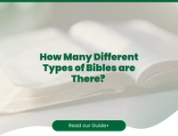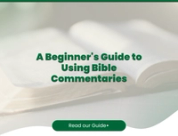Key Word Study Bibles give you direct access to the inspration and intention of the original written texts and make it easy for you to identify the false, mistaken or misleading interpretations of others.
With so many excellent Bible translations, it’s easy to forget that the original manuscripts were written not in today’s English, but in Hebrew and ancient Greek.
Only by the inspiration of God and the courage of the faithful do we have the experiences and testimony of the original words open to us in language s we can read and understand.
Know the intention of the Bible’s writers
For most Bible readers, a Bible in their preferred English translation is all they need. But more and more find interest andinspiration in comparing the inevitable differences in words found in the various English and ancient Bible translations.
An increasing number of Bible readers want to know how the words in their English Bibles relate to the Hebrew and Greek words of the original texts. This is not an expression of doubt in the English translators, but a desire to get closer to the original meaning of the original writings.
For the most dedicated Bible readers, only a course in Hebrew, ancient Greek and even Aramaic will satisfy. But for most of us, an easy-to-use Bible dictionary or ‘concordance’ – the Bible equivalent of traveller’s phrase book, is what we really need.
Easy access to the genius of ‘Strong’s Numbers’
For many years, one of the most useful tools for translating the true meaning of the original Greek and Hebrew words was – and still is, ‘Strong’s Bible Concordance’ (dictionary).
First compiled in 1890 by Dr James Strong, his concordance gives the English meaning of more than 8,500 Hebrew and over 5,600 Greek words from the Old and New Testaments.
The genius of Dr Strong is to give every translated word an unique number, still identified today as the ‘Strong’s number’. Brilliant as it is, Strong’s – and its updated version, the Goodrick/Kohlenberger dictionary, can be difficult to use with an ‘ordinary’ text-only Bible… until now.
Greek and Hebrew insight at your finger tips
The Key Word Study Bible gives you access to Strong’s Hebrew and Greek Concordance direct from your preferred (NIV, KJV or NASB) English Bible translation.
At the back of every NIV and NASB Key Word Bible you’ll find a concise version of Strong’s concordance. With the NIV version, you get the updated Goodrick/Kohlenberger dictionary, and easy access to all the key Greek and Hebrew words and their English translation.
Even better, wherever a key word appears in the Key Word Bible text, the ‘Strong’s number’ is given alongside. From there it’s easy to flip over the pages and instantly find what the original Hebrew or Greek writer intended to say.
How Key Words work in everyday use
The best way to show why you need a Key Word Bible is to go step-by-step through this Greek-English translation problem from the New Testament.
In the King James Version (KJV) the English word ‘repent’ occurs many times – as you’d expect; it’s a key Bible message. Two places where the word appears are Matthew 3: 1-2, and in Matthew 27: 3.
In Matthew 3: 1-2, you’ll find: ‘In those days came John the Baptist, preaching in the wilderness of Judaea, and saying “Repent ye: for the kingdom of heaven is at hand…’
In the Key Word Bible, the Strong’s Dictionary reference number 3340 is shown beside ‘repent’. A quick look at the built-in Strong’s Dictionary shows the Greek word as it appeared in the original Greek manuscript.
Different Bible meanings of 'Repent'
Later, in Matthew 27: 3, you'll see: ‘Then Judas, which had betrayed him, when he saw he [Jesus] was condemned, repented himself…’ This time the Key Word Bible shows the Strong’s number 3338 beside the word ‘repented’. This means that the original script used two different Greek words.
What difference does this make? Well, the original word in Matthew 3: 1-2 is the Greek word meaning to understand, relent, change your mind and think differently. But the Greek word used in Matthew 27:3 means only to have regrets.
In effect Matthew describes Judas as showing only sorrow for his actions. But John is calling for a complete change of heart and obedience to God. This difference is crucial to what Matthew wants to say about what it really means to repent and follow Christ.
What this means to you in real life
Knowing the original meaning of Bible Greek and Hebrew words will make you more able to find the reald intention of the Bible’s writers before their words were translated into English.
The insight of a Key Word Bible will better equip you understand your Bible, explain it to others and answer its critics. With Key Word access, it’s easier to identify false, mistaken or misleading teaching and resist the ‘logical’ arguments of Bible hijackers.
D: FULL PAGE: KEY WORD STUDY BIBLES words
KEYWORDS: Key Word Study Bibles.
KEY WORD BIBLES
Keyword Study Bibles – easy access to the original inspiration of Bible words.
With so many excellent Bible translations, it’s easy to forget that the original manuscripts were written not in today’s English, but in Hebrew and ancient Greek.
Only by the inspiration of God and the courage of the faithful do we have the experiences and testimony of the original writers open to us in words we can read and understand.
Key Word Study Bible – find the inspiration and intention of the Bible’s writers
For most Bible readers, a Bible in their preferred English translation is all they need. Many will find inspiration in comparing the inevitable differences in the words between the various English translations.
An increasing number of Bible readers want to know how the words in their English Bibles relate to the Hebrew and Greek words of the original texts. This is not an expression of doubt in the English translators, but a desire to get closer to the original inspiration in those early writings.
For the most dedicated, only a course in Hebrew, ancient Greek and even Aramaic will satisfy. But for most of us, an easy-to-use Bible dictionary or ‘concordance’ – the Bible equivalent of traveller’s phrase book, is what we really need.
Key Word Study Bible – easy access to the genius of ‘Strong’s Numbers’
One of the most useful tools for translating original Greek and Hebrew words into English was – and still is ‘Strong’s Bible Concordance’ (dictionary).
First compiled in 1890 by Dr James Strong, his concordance gives the English meaning of more than 8,500 Hebrew and over 5,600 Greek words from the Old and New Testaments.
The genius of Dr Strong was to give every translated word an unique number still identified today as the ‘Strong’s number’. Brilliant as it is, Strong’s – and its updated version, the Goodrick/Kohlenberger dictionary, can be difficult to use with an ‘ordinary’ text only Bible… until now.
Key Word Study Bible – Greek and Hebrew insight at your finger tips
The Key Word Study Bible gives you access the insight of Strong’s Hebrew and Greek Concordance direct from your preferred (NIV, KJV or NASB) English Bible translation.
At the back of every NIV and NASB Key Word Bible you’ll find a concise version of Strong’s concordance. With the NIV version, you get the updated Goodrick/Kohlenberger dictionary, and easy access to all the key Greek and Hebrew words and their English translation.
Even better, wherever a key word appears in the Key Word Bible text, the ‘Strong’s number’ is given alongside. From there it’s easy to flip over the pages and instantly find what the original Hebrew or Greek writer intended to say.
How does it work in practice?
The best way to show why you need a Key Word Bible is to go step-by-step through this problem from the New Testament.
In the King James Version (KJV) the English word ‘repent’ occurs many times – as you’d expect; it’s a key Bible message. Two places where the word appears are Matthew 3: 1-2, and in Matthew 27: 3.
In Matthew 3: 1-2, you’ll find:
‘In those days came John the Baptist, preaching in the wilderness of Judaea, and saying “Repent ye: for the kingdom of heaven is at hand…’
In the Key Word Bible, the Strong’s Dictionary reference number 3340 is shown beside ‘repent’. A quick look at the built-in Strong’s Dictionary shows the Greek word as it appeared in the original Greek manuscript.
Later, in Matthew 27: 3, we read:
‘Then Judas, which had betrayed him, when he saw he [Jesus] was condemned, repented himself…’
This time the Key Word Bible shows the Strong’s number 3338 beside the word ‘repented’. This means that the original script used two different Greek words.
What difference does this make? Well, the original word in Matthew 3: 1-2 is the Greek word meaning to understand, relent, change your mind and think differently.
But the Greek word used in Matthew 27:3 means only to have regrets.
In effect Matthew describes Judas as showing only sorrow for his actions. But John is calling for a complete change of heart and obedience to God. This difference is crucial to what Matthew wants to say about what it really means to repent and follow Christ.
So what does this mean to me in practice?
Knowing the meaning of original Greek and Hebrew words will make you more able to find the real inspiration and intention of the Bible’s writers.
The insight of a Key Word Bible will better equip you understand your Bible, explain it to others and answer its critics. With Key Word access, it’s easier to identify false, mistaken or misleading teaching and resist the ‘logical’ arguments of Bible hijackers.
Quick guide: Key Word Study Bibles (KJV, NIV, NASB translations)
Key Word Study Bibles - what are they?
â—Â A full set of commentaries by real Bible experts covering each book of the Old and New Testaments and key themes that run through the whole Bible.
â—Â Available as individual commentaries to each book and as CD-roms to all the books of each Testament.
Key Word Study Bibles - why would I buy them?
â—Â As a Bible reader, to get closer to the original inspiration and intention of the original Hebrew and Greek texts
As church leader or teacher, to help you interpret and present the Bible with more accuracy, meaning and relevance.
â—Â As a witness to the Bible’s truth, to equip you to resist false, mistaken and misleading interpretations of the Bible’s meaning.
(links to Bible Speaks Today Series (BST)
What about you?
At Eden.co.uk you can find a truly interactive Christian community helping you find all you need to live, learn and grow your faith.
There’s lots of debate over how much ‘translation’ the Bible really needs for us to really understand and apply its teaching. After all, the King James version has been around for 400 years and we have an ever growing number of ‘modern’ English reinventions.
• Do you think we pay too much attention to the original words of ancient, long dead languages and what really matters how we apply the English we have today?
• Do you think we can’t apply the Bible truthfully today if we don’t know what the original writer’s meant us to read?
Tell us. Post your ideas, views and tips - bizarre and brilliant at Eden.co.uk




